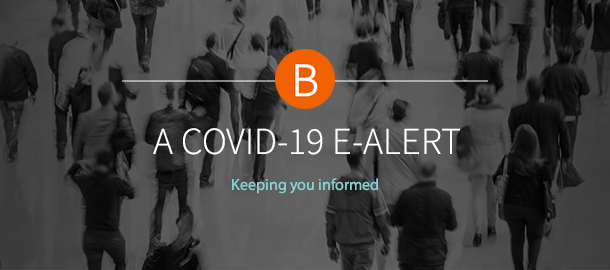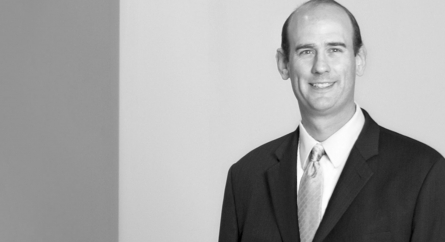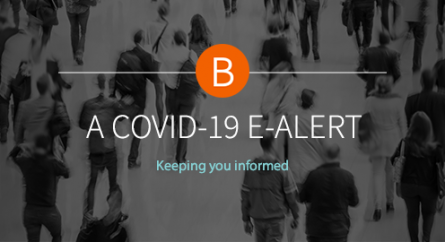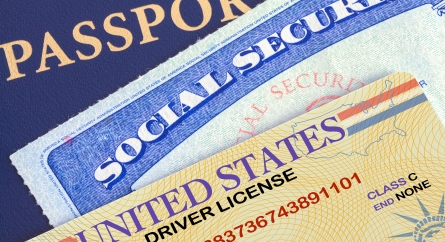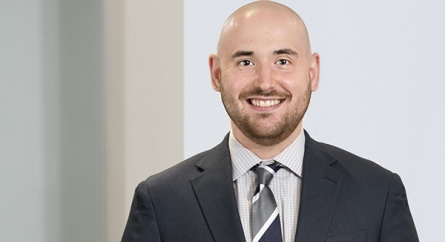Client Alert: EEOC Issues Updated Guidance Regarding Religious Objections to COVID-19 Vaccine Requirements
The EEOC recently issued updated guidance regarding religious objections to COVID-19 vaccination requirements. This updated guidance, in the form of FAQs, addresses the circumstances under which employers may need to provide religious exemptions under Title VII of the Civil Rights Act of 1964.
No “Magic Words” for Requesting Religious Exemptions
As noted in the FAQs, employees do not need to use any “magic words” to request religious exemptions to a COVID-19 vaccine requirement. However, employees are required to explain the conflict between the vaccine requirement and their sincerely held religious belief, practice, or observance. For employers’ reference, the EEOC shared the Religious Accommodation Request Form it uses with its own employees.
Permissible Employer Inquiry
The EEOC stated that while employers should proceed on the assumption that a religious accommodation request is based on sincerely held religious beliefs, where an employer has an objective basis for questioning whether the belief is “sincerely held” and/or religious in nature, the employer may conduct a limited factual inquiry to ask the employee for additional supporting information or documentation.
Traditional and Nontraditional Religious Beliefs, Practices, and Observances
As noted in the EEOC guidance, Title VII protects both traditional and nontraditional religious beliefs, practices, or observances, including those with which an employer may be unfamiliar. Employers are cautioned against assuming that a request is invalid simply because the employer is unfamiliar with the asserted religious belief, practice, or observance.
Objections Based Solely on Political Views and Personal Preferences Not Protected Under Title VII
The EEOC explained that objections to COVID-19 vaccination requirements based solely on social, political, or economic views or personal preferences are not protected under Title VII. However, the EEOC recognized that if there is overlap between political and religious views, as long as the view is part of a “comprehensive belief system and…not simply an isolated teaching,” such overlap does not remove the Title VII religious protections.
Sincerity of Religious Beliefs
The sincerity of an employee’s stated religious beliefs is typically a matter of individual credibility and employers should assess religious objections on an individual basis. In its guidance, the EEOC noted that factors that can undercut an employee’s credibility include whether:
- the timing of the request is suspicious (i.e., it follows an employee’s earlier request for the same request for secular reasons);
- the employee has acted inconsistently with their professed beliefs;
- the requested accommodation is “a particularly desirable benefit that is likely to be sought for nonreligious reasons”; or
- the employer has reason to belief that the employee’s request is not for religious reasons.
The EEOC acknowledged that religious beliefs may change over time so the fact that an employee’s practices are inconsistently observed or newly adopted is not alone a reason to judge them as insincere. Employers also are cautioned not to assume that an employee is insincere simply because the employee’s practices deviate from some commonly followed tenants of their religion.
Assessing Undue Hardship
Employers are not required to provide a reasonable accommodation if doing so would be an “undue hardship.” However, employers can satisfy the “undue hardship” standard more easily than they can in the ADA/disability context.
First, an accommodation requiring an employer to incur more than a minimal amount of cost is considered to be an undue hardship in this context. Moreover, the guidance notes that costs include not just monetary costs, but also non-monetary burdens on an employer’s business, including the risk of spreading COVID-19 to other employees or the general public. The EEOC reminds employers that courts have found Title VII undue hardship where the religious accommodation would (1) violate federal law, (2) impair workplace safety, (3) diminish efficiency in other jobs, or (4) cause co-workers to carry the accommodated employee’s share of potentially hazardous or burdensome work.
Undue hardship considerations also may include whether the employee works indoors or outdoors, works alone or with others, or has close contact with other employees or the general public (especially medically vulnerable individuals). The EEOC noted that employers may also consider the cumulative cost, including the number of employees seeking similar accommodations. Employers are cautioned not to assume that just because one employee seeks an accommodation other employees will follow suit; such an assumption is not evidence of undue hardship. However, employers may consider the actual, cumulative cost or burden of granting accommodations to other employees. The EEOC noted that, in assessing a whether a reasonable accommodation poses an undue burden, employers may rely on CDC recommendations.
Importantly, the EEOC stresses the need for employers to review each accommodation request on a case-by-case basis, and to know that just because they grant it for one, does not mean they must grant it for all. Each assessment depends on the particulars involved with that employee and their role.
No Requirement to Provide an Employee’s Preferred Accommodation
Where more than one reasonable accommodation could address the conflict between an employee’s sincerely held religious belief or practice and a COVID-19 vaccine requirement, employers should consider an employee’s preference, but employers are free to choose which accommodation to offer.
The EEOC noted that employers should consider all possible reasonable accommodations, including remote work and reassignment. A proposed accommodation is not reasonable if it would result in the employee receiving a lower pay rate or the loss of other benefits or privileges. If an employer denies an employee’s preferred accommodation, the EEOC noted that the employer should explain why that accommodation is not being provided.
Employers May Reassess Undue Hardship
Even after an employer grants an employee’s religious accommodation request, such an accommodation can be reassessed based on changes in circumstances. These include changes to the employee’s religious beliefs (which may result in requests for additional or different accommodations), as well as changes to the employer’s position (including where the request is no longer used for religious purposes or if the employer’s circumstances have changed such that the accommodation poses an undue hardship). The EEOC cautioned that, as a matter of best practice, employers should confer with their employees before revoking or modifying any previously-granted religious accommodations.
State Law Considerations
The EEOC’s guidance only addresses religious accommodation issues under Title VII. Employers also need to be mindful of their obligations under relevant state law.
Bowditch will closely monitor any developments on this issue and update you promptly. Employers with questions should consult with their Bowditch Employment & Labor attorneys.
Categorized: Client Alerts, Publications
Tagged In: COVID-19, vaccine, religious exemption

